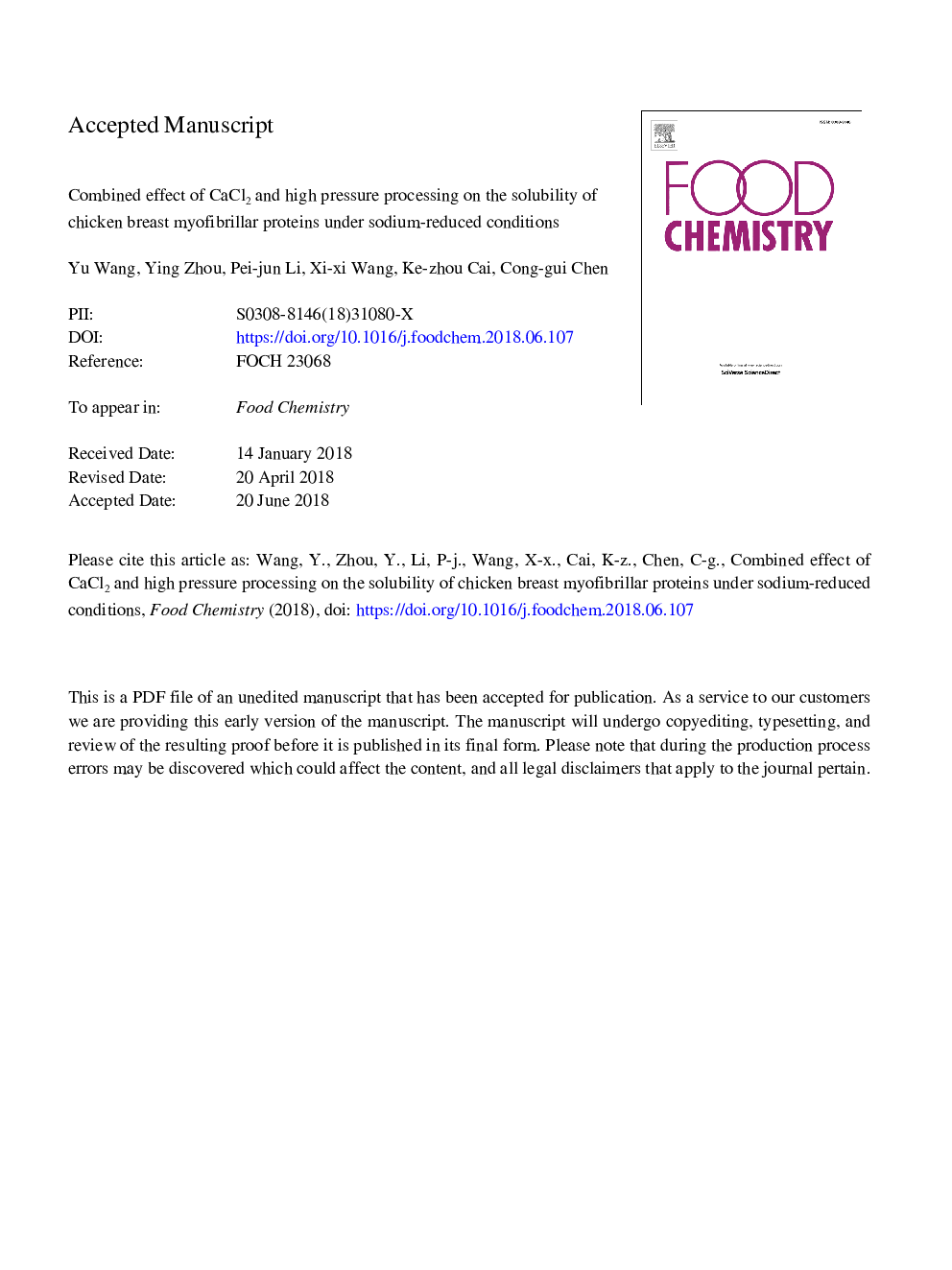| Article ID | Journal | Published Year | Pages | File Type |
|---|---|---|---|---|
| 7584194 | Food Chemistry | 2018 | 36 Pages |
Abstract
The combined effect of calcium chloride (CaCl2) (20-100â¯mM) and high pressure processing (HPP, 200â¯MPa) on the solubility of myofibrillar proteins (MP) was investigated under sodium-reduced conditions (0.3â¯M sodium chloride). The results revealed that HPP combined with low concentrations (<40â¯mM) of CaCl2 synergistically increased the solubility of MP, but an antagonistic effect occurred when a high concentration (100â¯mM) of CaCl2 was present. This synergistic effect could be attributed to a mildly destabilized conformation of myosin, an increased surface hydrophobicity and the decreased total sulfhydryl group content of MP. However, CaCl2 at 100â¯mM destabilized myosin to a larger extent and induced non-disulfide covalent cross-linking of S-1 subfragment in pressurized MP, thus attenuating the solubilizing effect of HPP on the myosin heavy chain, resulting in the antagonistic effect. Therefore, HPP in combination with low-level CaCl2 (<40â¯mM) may improve the functional properties of sodium-reduced meat products.
Related Topics
Physical Sciences and Engineering
Chemistry
Analytical Chemistry
Authors
Yu Wang, Ying Zhou, Pei-jun Li, Xi-xi Wang, Ke-zhou Cai, Cong-gui Chen,
